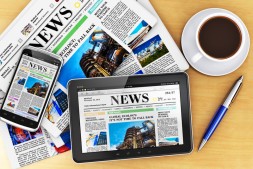I wrote an impassioned post following the results of the election. Still amped, I had another sleepless night, up at 3am. As I have for months, I logged in and went to the usual sites, CNN, BBC, The Washington Post. No need to go to 538. Polls mean nothing to me anymore.
 Quickly I scroll through click bait headlines, breeze through articles, scroll down through the comments. It’s all the same. The same pundits turning themselves into pretzels, the same commenters calling each other names and reciting questionable facts and hyperbole. It’s as if the election were still going on and people are unwilling or unable to shift gears. Yes, my candidate lost and yes, the next four years are going to be awful. Time to move on.
Quickly I scroll through click bait headlines, breeze through articles, scroll down through the comments. It’s all the same. The same pundits turning themselves into pretzels, the same commenters calling each other names and reciting questionable facts and hyperbole. It’s as if the election were still going on and people are unwilling or unable to shift gears. Yes, my candidate lost and yes, the next four years are going to be awful. Time to move on.
My sources of information failed to prepare me for the election results. I had found echo chambers of propaganda and confirmation bias. I had sought reassurance that this loathsome individual and his posse of slicked-back Breitbart winged monkeys were not, in fact, contenders. I was wrong and despite my inquiring nature and hungry mind, I was not prepared to fully participate in democracy. Most of us simply aren’t.
I don’t watch TV anymore, because online streaming is wonderful and generally free of commercials and vapid anchor chatter. I do listen to NPR, which includes a nice dollop of the BBC and the CBC. But the majority of my news comes from online. I avoid Facebook and Twitter feeds, curating those sites with a hammer.
This morning I cleared my bookmark Media folder. I am no longer interested in infotainment. I am no longer interested in being soothed. I put together a list of sources that are drier, less partisan, less flash and more substance, as well as international sources. I’ll share that list here, but won’t spend a lot of time defending my choices.
The second thing I did was create a Legislature folder. I bookmarked my city government, state and federal legislature websites. I went to each of my states US Congress people’s websites (of all parties) and signed up for the e-newsletters of upcoming and ongoing legislation.
Thirdly, how and when I retrieve this information makes a difference. I’m an early riser and while I’ve changed my morning routine to include meditation, journal-writing and offline reading, the last thing I do, before writing, is read the news. We all know how that ends up – two hours later I’m looking at cute chinchilla videos, nowhere near prepared to write. I’m limiting my news reading to lunchtime and the sources I’ll read will likely not have chinchilla links.
 Lastly, I will no longer read comments sections following news articles. Many of my revamped news sources do not have commenting as an option. As much as I am interested in what is happening and what people think about things, I think we can all agree that comment sections on news articles are Exhibit A of the Dunning-Kruger effect. None of us is as smart as we think we are. And to get smarter, we have to reach up, not down.
Lastly, I will no longer read comments sections following news articles. Many of my revamped news sources do not have commenting as an option. As much as I am interested in what is happening and what people think about things, I think we can all agree that comment sections on news articles are Exhibit A of the Dunning-Kruger effect. None of us is as smart as we think we are. And to get smarter, we have to reach up, not down.
It’s time to reset, to arm myself with information, to learn how my government works on a micro-level. Information must precede any action and the sources must be curated. Talking points do not an informed citizen make. This is how my revolution begins…
My list of news sources:
- Al Jazeera English

- Asia Times
- Associated Press
- BBC
- C-SPAN.org
- Center for Economic and Policy Research
- Factcheck.org
- Good News Network – Thrown in as a positive counterbalance (There might be chinchillas).
- NPR
- PBS NewsHour
- Politifact
- Reuters
- Russia Beyond The Headlines
- Vox.com
For Legislative Sources:
If you have sources or ideas for sharing information, please share. The goal is to find less biased, less partisan sources with a focus on disseminating core information and not entertainment.